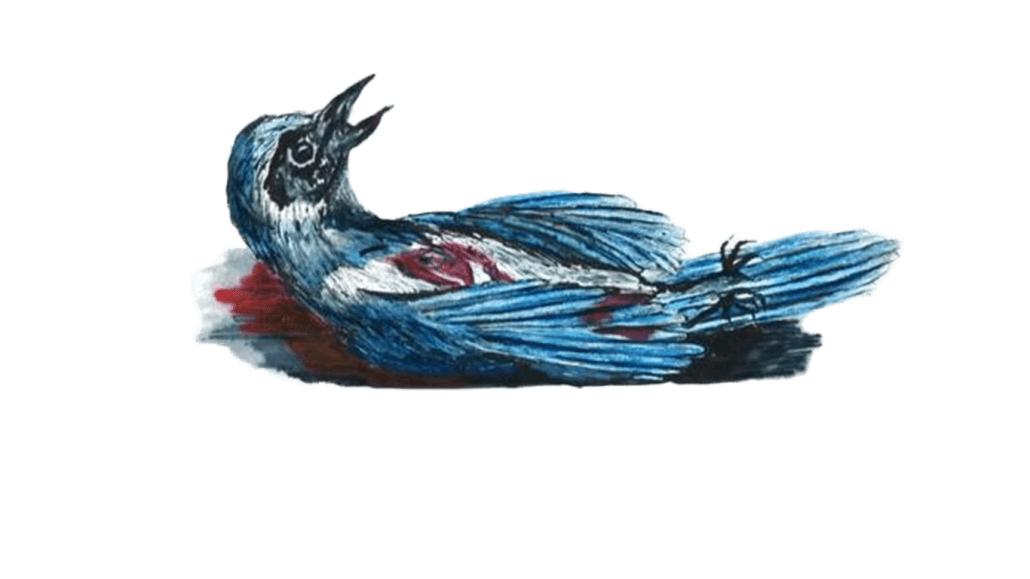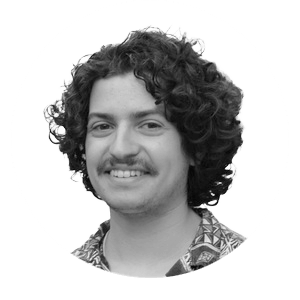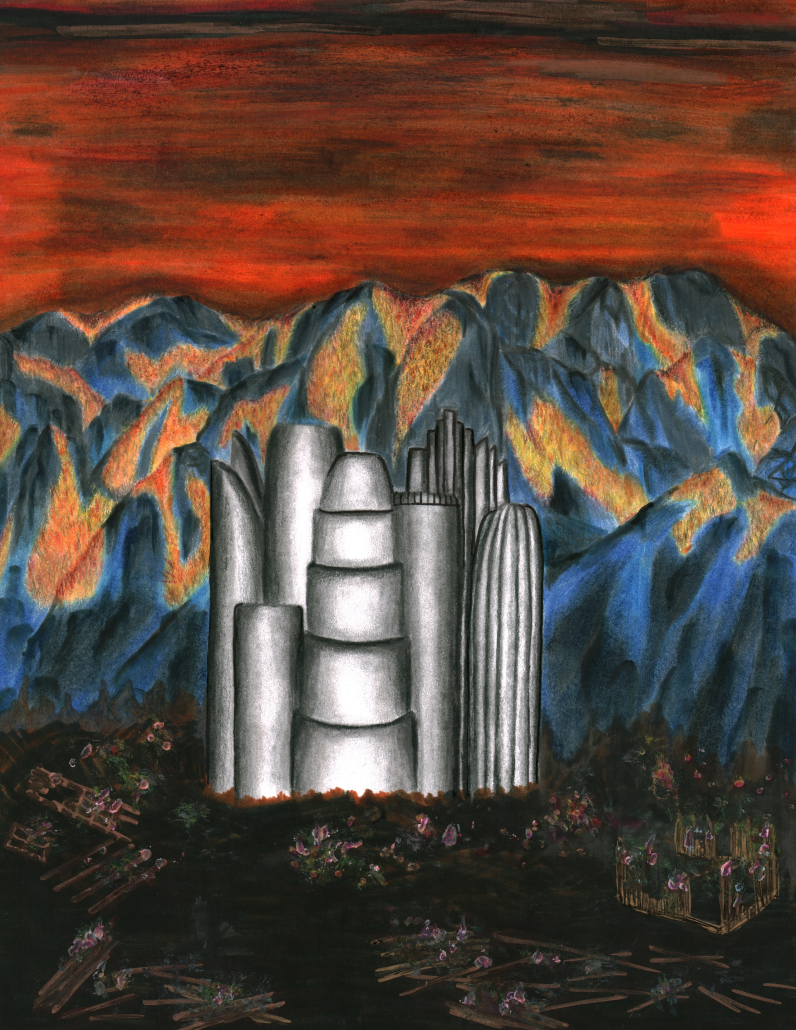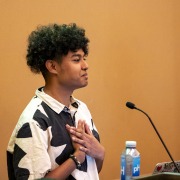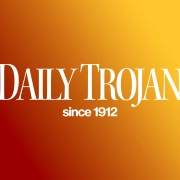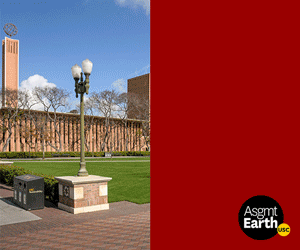A confession about the politics of fire and loss.
Disclaimer: This is a work of fiction. All characters and events are products of the author’s imagination. Any resemblance to actual events or persons, living or dead, is almost entirely coincidental.
My name is Jeremiah Cleveland. I am writing this letter from a dusty mountaintop in Santa Monica. Today is Dec. 27, 2052. Cracked, blackened earth now takes the place of Los Angeles, a memory carried by a quivering breeze. I fear I may be responsible for this tragedy. This is my confession.
I used to manage a cornfield in Iowa, a great swath of land bounded only by the horizon and an endless blue sky. It was my slice of paradise an hour out from Cedar Rapids, with a shed for my tools and a white shingled house shaded by a single oak tree. My daughter would go out and play by it as Josie made lunch, and I would be out sowing, reaping and selling. The sky would blaze with crimson, and I knew it would be time to wipe my brow and sit at the dining table for that night’s dinner. At the crack of dawn, I would be there to tend to what the farm needed — braving God and His wilderness in the name of that which was orderly.
It was a charmed life, surely; a respite from the tribulations of the human condition. It was something I had under my control, something I could nurture and was a direct product of my own hand. But that was nearly 30 years ago, a time of comparably more mundane crises.
Once a year, on my daughter’s birthday, we would go out to town to celebrate this most wonderful of milestones. We would go out for a great dinner and eat ice cream, something we missed back on the farm. We would then stroll to the midpoint of the 3rd Avenue bridge and watch the water run beneath us. It was on one of those birthdays that I received a letter from the United States Department of Agriculture when we arrived home.
Several major buyers had severed their connection to the farm. I was utterly baffled. I pulled open my laptop to see if South American corn had a bumper crop again this year. The news was far more foreboding: “Lab-grown corn cheaper than farmed for first time outside of California,” read a headline in the Des Moines Register. Same in The New York Times.
I couldn’t believe my eyes. I sat there paralyzed, my horror-stricken face illuminated by the glow of my laptop screen. I’m ashamed to admit that in my ensuing anger, I made certain that was the last that screen ever glowed. After I told Josie the news, she took me by the hand and into her arms. We quietly cried that night. Our lives were over as we knew it.
I don’t recall when, in the following months, I received another letter signed by the USDA. I furrowed my brow and had half a mind to toss the damn thing. But I set it aside and watched the shadows cast by the corn, which had so generously and unwaveringly sustained my livelihood, trace an arc in front of my porch. For hours, it was just me, a beer and the letter on a bench surveying all that was lost.
I eventually did open the letter after tireless persuasion from Josie and my daughter, Virginia, who was relentlessly curious about the world and could not stand the thought of an unopened letter. Eventually, I relented and tore open the envelope. Inside was a job offer from the USDA itself. I was shocked, to say the least. What could the government need from a simple farmer whose skills were rendered redundant by yuppies in lab coats?
Reading further, I saw the position was that of a “project manager” — presumably, they figured that managing a farm was transferable in that respect — but located in L.A.? I nearly tossed the paper when the salary gleaned from the bottom right of the sheet: $1 million in minimum annual income. My jaw dropped, and I pointed out the figure to my wife, whose jaw also dropped. Virginia came over to take a peek and shrieked, “One whole dollar!”
I wrote a letter back saying that the USDA would have to interview me in L.A. because that was where I was headed.
🙟•••🙝
The next day I received notice of a meeting place in the purported City of Angels.
Our belongings were few, save for a trusted axe and a shotgun, some old furniture from generations passed, and the odd necessity insisted upon by my wife and daughter. The rest we sold, mostly to buyers overseas, where the equipment was still in demand. On the last day before we left, our lives tied up in the bed of the pickup truck, I went out to the fields that had nurtured my bloodline since it had parted ways with the British Isles.
I ran my hands through the stalks, tough to the touch but soft to the elements. My boots pressed into the saturated soil on my walk back home. I took it all in. Our modest home, the mighty oak. My heart swelled and deflated at the sight. I turned around, turned on the ignition and turned my life upside down, Virginia and Josie in the back.
We rushed by acres of untended land, tractors rusting in acres of wheat and corn. Further, we were bit by the dry air of the high Rockies and descended into the broiling pits of the netherworld once we reached the Mojave.
On the horizon was a thick black blanket — its edge dividing the sky. A line of cars poured in our direction from underneath it. We soon crossed the edge into the darkness. We strained our eyes to find the sun, which Virginia tentatively pointed out as a great red orb looming over us. Just under it, we could see the source of the smoke: A great ribbon of flame on the horizon, swatting at the minuscule helicopters that sought to tame it. Perhaps these were the famed fires of California.
Around us was nothing but a great plain of honey-colored grass — a curtain of smoky air obscured anything beyond it. Ash began accumulating on the base of the windscreen, which I occasionally wiped away. As we sped through this ocean of grass, I could have sworn that I occasionally spotted the melted forms of old tractors and harvesters sitting among this great tan expanse, scars of a bygone way of life.
We were at the base of what the map indicated to be the last set of mountains when we reached a blockade of fire-fighting vehicles preventing our passage. A man in a heavy green mask approached my truck. He told me that I had to turn around, that I would be driving into the mouth of hell itself if I were foolish enough to continue.
I told him I was there on some kind of government business, careful not to reveal my inexperience. To my astonishment, he waved me to a black helicopter, which I approached. The men instructed me and my family to leave the car as they slung masks over our faces.
I asked about my vehicle and belongings — the men assured me they would be guarded safely — and we were ushered toward the large helicopter. I could barely hear it over the commotion and whirring blades, but as I stepped into the machine, I saw Josie cradling Virginia, who I could hear was sobbing. I rushed over, seeing she was shaking. I told her that we were very close to the end of this journey, that the arduousness would end. She didn’t seem to calm, but at least she permitted us to help her into the helicopter.
It lurched upward and whisked us over the mountains, from which I could see the great fire. We were told this range was called San Gabriel and that it sent fire and misery into the city. I could see how circles ringed by red flame marked the point where brush was converted to dust. Other helicopters poured red and green powders onto the flames, which only stifled their march across the landscape. It was a beast to tame, I was told.
We soon cleared the range over into a blackened valley. The ground was nothing but ash and cinder, with the occasional puffs of smoke burped out. Straining my eyes, I could see lone trunks like blackened matchsticks and then rubble. The frame of a house, a lump of coal with headlights. Melted street signs. I was told it used to be called Pasadena; now it’s called a tragedy. I looked over at Virginia, who had her face buried in my wife’s dress, and then at Josie, who herself was squeezing her eyes shut.
The smoke began to clear, and descended on another valley — a great expanse of flatness, aside from the occasional mound or two. I entertained the idea that this place may be home yet. I noticed that everyone was looking in another direction. I turned my head to follow their gaze.
Great white towers were planted in the Earth like an immense stone hydra. They were like skyscrapers, but so closely knit and so uniform in texture they seemed carved out of a mountain; a monolithic David in the scale of Goliath. The towers were bordered by miles of exposed, barren terrain. The raw rock formed a crisp border with a sea of small homes extending to the ocean. It was the most profound expression of raw human power I had ever witnessed, a thwarting of the physics meant to constrain us. It embarrassed Versailles in its utter imposition of order and geometry on unrelenting nature.
I could spot nary a tree. It was human creation, pure and unfettered. This was the City of Angels, sculpted by the hand of their godlike master.
We landed on a building overlooking this anthropic mountain in a place that was once an observatory, or a museum about observatories; the man escorting me was somewhat unclear on the matter himself. I was told Virginia and Josie were taken to our new place of residence to get settled. I was taken through long marble halls to meet my employer. Granted, I have omitted some of the mundanities of this process, but I was ultimately taken through heavy metal doors that led to a large desk with a small man behind it. He was bald and wore sunglasses indoors.
He informed me that the USDA sought to reintegrate many of the agricultural workers displaced and unemployed by the unprecedented shift in food production toward jobs responsible for managing these lands — “shepherds of opportunity,” I recall him saying.
Based on my qualifications, the methods of acquisition for which I was never elucidated, I was best suited to be the chief architect of fire safety for the people of Los Angeles. Even at the time, I thought that it was a bit odd that such a large city would only now be employing such an evidently integral position given the severity of the issue at hand, but I took it in stride after I was lured by the benefits — free housing, insurance.
I was brought to my house with instructions that I would begin the job quite soon. It was a marvelous place, a two-story behemoth smothered in lavish plaster decor and red terracotta roofing. It was even flanked by palm trees to boot. The interior was sparse, dotted with the little furniture we had hauled halfway across the continent, but even then, I could see it becoming home. I met with Josie in the backyard. She stared wistfully to the horizon, blocked by a mountain that read, “Hollywood.”
She told me that Virginia had fallen asleep upstairs, exhausted from the stress of the move. In turn, I relayed the day’s meeting, to which she expressed the same perturbation I had; she asked if the decision was worthwhile.
“It was this or starvation,” I mustered. It wasn’t so bad. On some days, the sky even shone blue.
🙟•••🙝
The first morning of labor was rattling. Pumped full of apprehension, I whipped my pickup through the grid of the Angeleno suburbia. The streets were silent, with not a sound but the echo of my engine as I roared through. It felt reminiscent of the quiet of Iowa, except the quiet was more deafening and cold. There was no soft rustling of corn to backdrop my commute.
The suburbs then shifted to smoldering ruins, smoke wafting through the charred remains of neighborhoods and communities. The rubble was piled onto either side of the road, and I pressed onward. The blackness then became great planes of dried grass, a blanket of beige dropped onto the landscape, her curves and valleys naked to the eye. Bereft of the smoke on the other side of the mountains, I could take in the sheer immensity of the grass’s coverage. The scenery had a strange beauty, almost surreal in its uniformity. It paralleled a wallpaper I recall seeing on my father’s Windows desktop in childhood.
How odd that the scenery was almost identical to that which I saw in the Central Valley, I had thought.
I then pulled into a cleft of the mountains, where my men were waiting for me. They, too, had come in their pickups — some with plates from Indiana, others Ohio, Arkansas and one Iowa. They, gruff as I but with yellow construction vests, had already gathered around a man dressed in black giving them instructions.
They looked toward me, then the man.
“Your leader has arrived,” he said, pointing a pen in my direction.
He gave me an orange vest and my orders: I was to clear these mountains of their fire-spreading brush Monday through Friday, eight to four. He explained that despite the great buffer between these wildlands and humanity, the embers from the brush can travel far by wind, and when they land on properties, they can ignite. The city of L.A. was aiming to relocate its millions of residents to the newly-built core, but it was our job to eliminate the threat.
“And the grass?” I had asked, wondering if this plant was, too, a menace.
He said it kept the hills from eroding since bare slopes lead to landslides. His nonchalance regarding the matter was enough for me. It was a moment of silence I would come to regret.
The man roared away in his unmarked vehicle, and I was left with my fellows.
After a brief silence, I was informed that we were given four bulldozers and two excavators to share between us, a group of nine. They were a silent bunch, but I figured I could assign seven to vehicles and stay with two to supervise. The men nodded and clambered into their vehicles.
After some minor difficulties, the machines began their crawls up the mountainside, scraping away the green and red of nature’s kindling. Every so often, a burst of birds would fly out, squawking in fright and confusion.
One of the two men, Derek, who had remained tight-lipped to this point, remarked that the birds scattering took him back to days of duck hunting with his father. The other, Chris, agreed, but said that for him it was pheasants. I myself had never gone hunting, but in the spirit of conversation, I chimed in that I had brought my shotgun on the trip. Both remarked they had done the same. And then, suddenly, we arrived at the same conclusion.
“You know,” Derek drawled, “we have a chance to do some good ol’ huntin’, like back on the farm.”
We agreed, and I felt it could be an opportunity for bonding. In the same way, we were alone together.
At that moment, an excavator tipped over and slid down the hill. It screeched and screamed as metal scraped against rock, and all activity ceased as we watched it make its way to the road. I shot toward the machine in the hopes that the man inside was still breathing. To my surprise, he jumped out, grabbed my shoulders and began sobbing.
“I’m so sorry boss,” he cried. “Please, I need this job.”
He continued about his family and his farm. I lifted his chin and told him that as his boss I would let him stay and that it was an understandable accident. I did ask him, though, how he could tip the thing if he — like me — had been chosen specifically for this position? He sniffled, sighed and explained that he was told the same thing, but he had only ever operated farm equipment on flat ground. I later learned that this man was called John.
By this point, all seven other men had gathered around me. I asked them in earnest if any of them had operated this equipment before, and all shook their heads. I offered to call the supervisor and ask for an explanation, but they all shouted in protest with the same plea: They needed this job. I looked at the men, shaken, lost. I saw myself in them. I advised that they clear low to moderate gradients and save the higher ones when they have had greater experience. The men smiled tearfully, and by 4 p.m., we had amassed our own mountain of cleared brush. We said our goodbyes and dispersed to our residences.
🙟•••🙝
The next morning, we gathered again and found the pile of vegetation we had left had been cleared, and we presumed it was the doing of the men in black. After a quick meeting, we began to tear away at the green covering the hillside. There was a hard line separating yesterday’s job from today’s and tomorrow’s. On one side, dark green vegetation supported by red and brown twisting bark; on the other, raw, yellow decomposed granite.
Today, John and a man named Michael were by my side to supervise. We leaned on our trucks, watching bursts of birds flutter out of the brush as it crunched under our machines. John was quiet but visibly less nervous. Before I could open my mouth to ask how he was, a crack rang through the mountains, and an explosion of blue feathers rained down on a bulldozer.
I whipped around and saw Michael in the bed of his pickup, cocking his rifle with a great grin on his face. “Just like back home,” he smiled. I could do nothing but express my admiring astonishment.
“I’ll be damned.”
The bulldozer, now dotted in blue, stopped, and a man came running out. He frantically inquired about the commotion, and when I told him the cause, he beamed and asked if he could join. My immediate instinct was to welcome the opportunity, but as we were still on the job, I felt it was best to devise an alternative solution. I asked John his thoughts.
He suggested we rotate who is on break every two hours, covering all eight men. I patted him on the back, congratulated him for a great idea and eventually relayed this system to the rest of the group. They cheered, and every two hours a new pair would shoot at the birds fleeing from our machines. I was asked to participate, but I felt it was important to maintain a professional distance from my men; I was their boss, after all.
As the days passed and we shaved the mountainside, the game began to evolve. Derek, the most competitive member of the group, suggested that they keep score, and brought with him a board with our names written on it. His point system was straightforward: black and brown birds were one point, blue were three, yellow were five and birds of prey were worth 10. Once we got into the valleys where the oaks grew, we added woodpeckers and ducks to our system, both worth six points.
It soon became ritual for the men to collect their kill between shifts and load it onto Derek’s truck, and some days, it nearly reached the brim of the bed. Very soon, as the 4 p.m. sun beat down on our necks, the men began to dally before leaving, bragging about kill counts and then exchanging personal stories. Most days, I bade them goodbye to pick up my daughter from school, spent time with the family and on my lonesome. Other days, I would stay behind and exchange histories with some of my men. Many of them used to live and breathe corn as I did; others harvested soybeans, and others still wrangled cattle. All replaced by the ever-thirsting vacuum of progress.
They told me how they received the news in all sorts of manners: through mail, a sign outside their property, a trusted friend. But we were all offered the job in the same circumstances: after a couple of months of hopeless destitution.
We were, of course, living far more lavishly and comfortably than what was afforded by the lifestyle of our previous occupation, but many of us missed the simplicity. Without much incentive to go back, though, we remained complacent in our overpaid maintenance jobs.
For months, we would perform our ritual of labor: clearing, shooting, chatting and leaving. We had grown tight as a group, weaving our way through the peaks and valleys of the San Gabriel Mountains as we ever more deftly shaved them of their bush.
Eventually, and in retrospect, inevitably, I was asked to join their shooting game. I expressed some hesitation for my want to maintain some kind of professional boundary with my men. But that hour, John was by my side, and he grabbed his shotgun, held it out and simply asked, “Please.” By this point, I had grown a particular fondness for the man of few words, so I took it and waited for the next flock of escapees.
A group of three blue-backed, white-breasted birds escaped from a large, red-berried shrub Michael was approaching with his bulldozer. I took aim, shot at them and plucked one from the group. It dove into another bush. John and the other man, Winston, cheered. Satisfied, John took back his shotgun when I handed it back.
When the time came for them to switch places, I snooped the area where it had fallen and picked it up. I had hit it straight in the chest, and red soaked its white breast. I examined the bird closer. Its blue back shimmered in the sunlight; it seemed to glow. I turned it over in my hand. It had a blue necklace running around its neck and white eyebrows. The bird was beautiful. I felt grief creeping up my throat, but I swallowed it down before it reached my eyes. I cradled the bird in my palms and set it down on my passenger seat, hoping to show it to Virginia, who was learning elementary biology.
Four p.m. came, and the men exited their machines, ready to mingle after the day’s end. My men came over to ask where my kill was, having heard I partook in their game, but I remarked that I couldn’t find it. They patted me on the back regardless and wished me a pleasant afternoon.
I arrived home with the bird clutched in my hand and found Virginia in the living room watching the television. I told her I had a question about a bird, and when she turned around to see one dead in my hands, she jumped. I reassured her it was dead, and she examined it, her hands behind her back. She then ran over to her backpack, extracted a thin booklet and opened it to a bookmarked page.
“That’s a scrub jay,” she said with the authority of any child who had just learned something new in school. She turned around the booklet so that I could read it and said, “See?”
And so it was a scrub jay. “Good job,” I told her, and I tussled her hair. “May I have a look?”
“Okay!” she replied sweetly and gave me the book. Such a heartwarming girl. I carried the bird and book to the yard and read the supplementary facts under a bloody sky.
“The scrub jay is one of several jays native to California. It can be distinguished by its blue back, white belly, blue ‘necklace’ and gray upper back.” I turned around the bird and saw the patch of gray feathers between the wings. “Scrub jays often forage in family groups of two or three. This bird is known to spread and plant tree seeds as it stores them for the winter. These plants are flammable, so to keep your family and neighbor safe, you should eliminate them on sight.”
I dropped the booklet. Is this what they were telling my kid? I was about to storm into the living room to understand what in tarnation they were saying to my Virginia, but I looked at the sky, its deep red, the blanket of soot. I looked at the bird. It’s just fulfilling its duties to its family, but that endangers mine. I took the booklet, set it down on a countertop and laid the jay in some bare earth. I looked to the sky, then down at the bird.
“I’m sorry about the loss of your job,” I whispered. I then covered it in soil and sat beside it, looking upward.
I felt the guilt creep back up my throat. But this time, I let it reach my eyes. Tears fell on the mound covering the jay. I cried for him and his family.
🙟•••🙝
A year had passed since I first took the job. The winter rains had brought about several landslides of the rock we denuded, impeding progress for about a week at a time, but my men had grown so adept with the machines that clearing all types of terrain was a facile task. Boulders, oaks, cougars, they quaked all the same at the weight of our might. The line dividing rock and green pushed further north, and the commute to our starting location grew ever longer.
It also appeared that these rains washed the sky clean. When blue was once a rarity, it became everyday. A true rebirth of nature.
In spring, I was surprised by fields of green pasture running from the houses up through the mountains, blanketing the scars we wreaked over the peaks. There was one occasion when, through the clear March air, we caught a glimpse of another team tearing through the brush across a valley. We unspokenly chose to race the other team to the bottom, and they did the same; we won by two hours. That afternoon, we went to a bar to celebrate.
When I came home, Josie rushed me into the kitchen. I was still kicking off my muddied boots when she pointed at an article she had pulled open on her laptop screen.
“Fires Begin to Ravage Central Valley Early,” the headline read. I told her that she needn’t worry about it affecting us — those fires did not have enough fuel to cross the mountains which we had cleared of vegetation; rock does not ignite. In spite of the explanation, she still looked perturbed.
“Virginia has been telling me about what she’s learning,” Josie said nervously, running her hand through her hair. “I just get the feeling that we may not be doing enough.”
“Ridiculous,” I scoffed, “The fires won’t reach the city because we cleared the brush. There’s no need to focus on what I’m doing. How about you focus on making dinner?”
🙟•••🙝
Summer came, green faded to tan and we pushed ever further toward the northern edge of the range. It was on one of those summer days the sky began to smoke for reasons we could not have fathomed at the time. Ahead of us, beyond what was still forested, was endless azure. Behind us, beyond the hills of honey, was a wall of blackness meeting the clouds. I received a call. They were evacuating the city.
We all jumped into our cars, motivated by one terrifying thought. We snaked through the honeyed hills in our pickups, roaring as fast as the turns would let us. The air grew thicker as the smoke built, and once we descended the mountain, we could see plumes of ash erupting from the fields ahead.
In our foolhardy bravery, we forged ahead. Our progress was eventually impeded by a blast of heat so intense it evoked the sensation that my skin was melting. We all stopped, except for one pickup — John. I stared, dumbfounded, as he raced into the smoke.
Helicopters soon descended over the inferno, pouring water and chemicals in an effort to abade its fury. Not until the sun was descending over the horizon had the flames quelled.
I pulled through the carnage, the air quivering around us. Black ash and embers floated on its currents. I then reached the edge of what had been a neighborhood, now smoky ruins. A pickup truck lay melted by the side of the road, with a blackened figure at the wheel. I tried not to imagine the implications.
Further down, my house was rendered a platform for kindling. I pulled over on the street, unable to access the driveway for it was covered with my kitchen. I waded through the rubble, flinging it aside in the hopes of finding any preservation of my past life. All ash and charcoal.
I flipped over a blackened plank, and a scrub jay burst from the wreckage, light smoke trailing behind it. It looked back, squawked and flew out of sight. I turned my gaze back to where it had been. A neat pile of dirt, pristine and circular, sat in the wreckage. Could this be? I dusted it off. No, it was an acorn. I pinched the acorn between my fingers and lifted it to my eyeline for examination. I hesitated — and put it back in the ground.
After more searching through the rubble I found a cracked picture frame containing a photograph of me, Josie and Virginia in front of the old oak by our home in Iowa. That was our home. I clutched the photo to my chest and sniffled, tucking it into my jacket.
Josie called me and quelled the worst of my fears — I knew my wife and daughter had been evacuated. What I didn’t know at the time was that I would never have the chance to see them again.
🙟•••🙝
When Josie informed me that she was leaving the country with Virginia, I was dumbfounded. Our conversation lasted for hours — until she had to board the plane. Only months later did I understand the necessity of her choices, but my judgment was clouded by pride and hurt in the moment and the months after.
I was relocated to a new house on the outer edge of the clearing that buffered the central city. For many days I would sit on my porch and gaze at it, our supposed solution. I had never dared enter it, the cracks between those divine white columns. Work no longer interested me, and it did not seem that it interested anyone to incentivize my return. So I sat, and I drank.
Sometimes Josie would call me. I would always let it ring. No wife should leave her husband, not if it becomes hell on Earth. My conscience would of course object to this terribly selfish line of reasoning, but I found that enough alcohol can drown that dissent. Over months the calls eventually began to subside in frequency.
One intoxicated afternoon, my vision beginning to blur and my head beginning to droop, I saw a waft of smoke from behind the city. A blemish on the yellow of the mountains was beginning to burn. A helicopter quickly flew over the flame and doused it, but the scene etched itself into a cavity in my brain. It remained there for weeks, immune to the onslaught of midday alcohol consumed to cure the morning’s hangover.
It was one of these migraine-inflicted mornings that I eschewed inebriation to answer an unspoken question that was beginning to develop. I hopped into my pickup, caked in dust, and set off for the mountains once more.
The edge of rock and brush was where we had left it. I rifled through my glove compartment and pulled out a flare. After exiting my vehicle, I removed the cap and struck it. Red flame shot forth. I spotted a shrub and approached it, the flare sparking. The leaves were large and glossy, supported by dark brown branches. I held the flare to the leaves. Nothing. I pressed it to the bark. Some smoke began to emerge from the wound, but pulling the flare away revealed a weak flame burning into the bark. I was able to snuff it out in seconds.
I then turned my attention to a patch of tan grass by the roadside. I took the flare to it, and it burst into flames. I recall my yelp reverberating through the valley, and I frantically attempted to stomp it out. The kindling potential for the grass was striking. I then turned back and gazed upon the great beige blanket that had replaced the deep green shrubbery we had so fervently razed. My knees wobbled and slumped onto the ground, mouth agape.
I do not know for how long I kneeled there, at the edge of the San Gabriel Mountains, but I remember the sky was bleeding when I returned home. Scarlet light was cast onto the hills, illuminating the grass in a fiery glow. All I could do was look around and take in the great red emptiness. I arrived home as the last fingertips of the sunset pierced the sky.
🙟•••🙝
The findings played through my thoughts without pause. I could not fathom how I stumbled this far in complete blindness to the realities that governed the basic nature of our world. My heart was wrung by the uncertainty I felt.
I sat in my living room and stared absent-mindedly at a wall as I sipped a beer, until my eyes focused and realized that I was staring at the photo I collected from the wreckage of our old house. I lifted myself from my seat and ambled toward it.
“That life is up in flames,” I thought sardonically. In that moment, I felt a mental jolt, like the illumination of some disparate part of my brain that had been ignored until then. I staggered back, and my beer shattered on the floor.
I rushed to my car to drive to the outskirts of town. It skidded to a halt where homes met rubble. Just as I had suspected. Tufts of grass were peeking from between fallen beams. I looked out to the once-barren mountains we cleared of green. Yellow. I then thought back to the first day I arrived here, how we passed through fields with charred tractors and harvesters. How they were engulfed in a sea of dry grass. I stood there, amazed with my realization. I stepped into my pickup and began driving.
The old observatory pulled into view. I stepped in, unquestioned, and marched into the office of the bald man in black.
I burst into the room, and he merely raised an eyebrow in acknowledgement of my presence.
With exasperated fury, I began, “Sir, do you know that removing farmers from their land leaves it barren and open for this highly flammable grass to move in and spread? And that once it burns down something, it moves in to replace it?” I said. “That clearing the damn forest is only making room for more grass? That it’s not the shrubs burning down half the city every year?”
The man stared blankly at me. “Who are you?” he said. “If you have a formal complaint, you may send it in through—”
“I work for you!” I shouted.
That appeared to jog his memory. He collected himself, and replied that clearing was policy and that all plants burned, though some remain impossible to eliminate completely.
I told him of my experiment with the shrub. “I’ve never heard of such a thing,” he replied.
“And you made sure to hire vulnerable people who have also never heard of such a thing?” I spat. “Who would crawl on their hands and knees through fire to protect their families, and would take your offer without questioning if what they were doing was remotely effective? That you would only hire ‘yes men’ who will grovel to your every whim?”
He pointed to the door. “Get out.”
In my rage, all I could do was turn around and leave — though not before hurling a chair at his shiny bald head.
I sprinted to my car, started the ignition and drove home. I knew the act would have my home searched and confiscated, so I grabbed the picture frame and drove west along the ocean and turned into the mountainside. Looking over the city, I could see another fire begin to erupt.
🙟•••🙝
My phone buzzed in my pocket. I picked it up. It was Josie. My conscience spoke up, and I finally answered.
Josie explained that the evacuations were swift and brutal; she and Virginia were whisked to the tower city with barely enough time to grab necessities, nevermind inform me. The evacuation was so immense that the city could not handle the influx of people, so planes were filled with families to carry them to safety; in Josie and Virginia’s cases, they were flown to La Plata, Argentina.
Josie then told of the lack of fires in Argentina, how they still farmed not for profit but as a way of life, and how millions of people have fled there seeking the same as her. She initially had the intention of returning to L.A., but found a life working in a bakery, Virginia was going to a bilingual school, and how she wanted me to come. She thought I could farm once again. Every phone call since was a plea for my visiting, a chance to tell me that she still loved me.
My heart dropped. What a bastard I was.
The conversation continued for what seemed like hours. We laughed, cried, exchanged histories and cried yet more. Virginia was happy in La Plata; everyone seemed quite welcoming of her and Josie. I then told her of what I had discovered.
There was silence from the phone. After a tense, silent minute passed. She then mustered, “Why did they let this happen?”
🙟•••🙝
The following is the bitter truth about the previous events and our future as a society. This much I have pieced together.
We are our own undoing. Our flaws are too great to be effective stewards of the Earth. Regardless, this position was self-appointed and thrust upon us, and is ours to bear. As a collective, we exist in a paradox of endless curiosity and a limitless defiance of evidence that curiosity brings us. The fact of our nature is thus: We are very clever apes but very stupid gods.
For decades we have understood and recorded how our cities disrupt the lands around them. That our trade brings in species that take advantage of the space and burn down everything in their wake to make room for themselves. Of course, it’s only okay when we do it.
And yet, in spite of the evidence, we feel the need to meddle with these systems for our own agendas. To clear land for supposed fire prevention, to impregnate wilderness with neighborhoods and strip malls. With us, the foreign species’ invasion will follow, seeding itself in the nooks and crannies of habitat and burning it. There is yellow on the hills of L.A., by the highways, in the parks, in backyards — it’s invasive, and it’s flammable. The city will always be at perpetual risk of flame as long as its hills remain yellow.
When we abandon spaces once relished by the creatures of nature, nature is not the one who comes back. It is parasitic grass. Land cleared for development, empty farmland, roadsides — all fill with this invasive kindling.
It spreads by going to seed and drying up before its native competition; in that way, it burns them out before they have the chance to replenish the soil with the next generation. These plants ensure their survival by eliminating all competition. In a way, their ecology reflects our own human nature.
I don’t think the men responsible for clearing native habitat by development understand the counterintuition of their actions. I don’t think the men in politics understand either. They, like us, make decisions based on their biases and the knowledge they have twisted to fit their worldviews. They, too, are incompetent stewards. They will compound their incompetence by surrounding themselves with those who blindly agree or are too terrified to say “no,” because they — we — don’t like to feel wrong.
The main difference between us and them is that they never face the consequences of their poor decisions. An incompetent politician may leave office, but he will die before the wrath of their actions is felt by the electorate.
Our position as individuals is bleak, but only because we overcomplicate problems in worship of our purported complexity. The world is not as complicated a place as we imagine it to be. It operates in ways we can never understand, not for the limits of our mental hardware but the limits of the paradigms we use to interpolate it. The way I see it, life’s great operating principle is thus: equilibrium and harmony.
Nature seeks to create a balance in its system, such that all life and death are meant for something. A deermouse is born from a mother who ate worms in a rotting log. Human nature used to be a component of the system. He who did not fit into the tribe was kicked out and eaten by lions. Now, we are so vast that tribes are warring clans and we all strive to feed one another to the lions. The same goes for our relationship with nature.
A river floods, we put it in a concrete ditch. A coyote enters a neighborhood that five years ago was acres of shrubland, we shoot it. A patch of land catches on fire, and we raze it to the ground. It, of course, never occurred to us to not build directly by the river, to leave space for the coyote or not sprawl into the foothills. Those decisions, though, have already been made.
All we can do now is choose not to cut down the bush and plant it some friends.
🙟•••🙝
The events that transpired can serve as a warning for those who have not yet fallen into that same spiral. I hope to tell my story so that someday, someone may listen. So that others do not make the same mistake I did, that we did. I have relayed my story in a series of letters, to be pieced together and distributed by you. I will come to you, my darling Josie. This is my last letter, for now.
